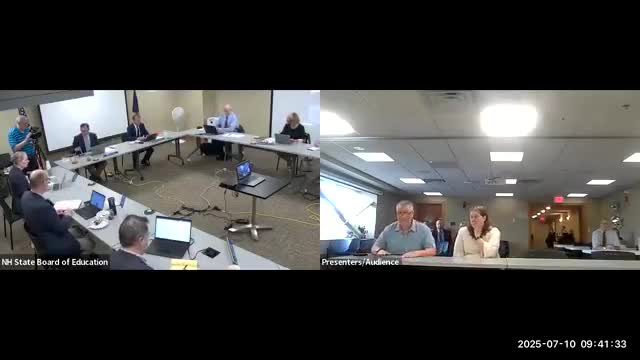Article not found
This article is no longer available. But don't worry—we've gathered other articles that discuss the same topic.
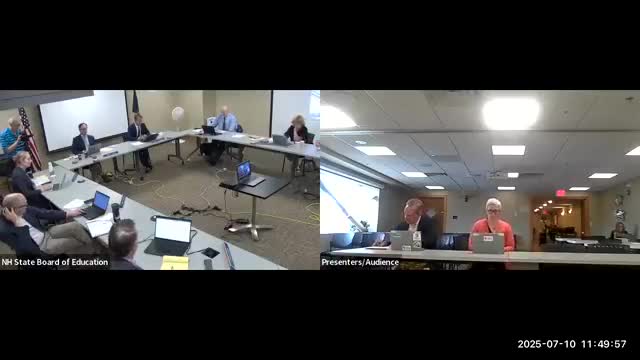
Board discusses teacher‑licensure trends; removes master's requirement for reading and math specialists
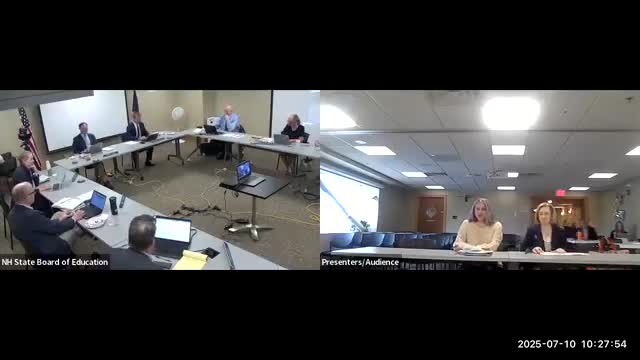
State Board approves several education‑prep program eliminations, seeks rule changes to streamline teach‑outs
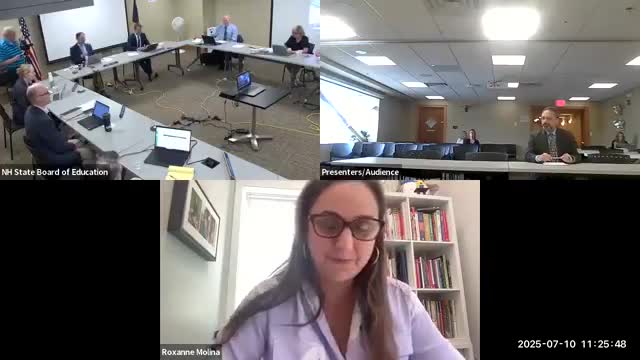
Bedford Academy approved to add a sixth grade to retain rising students
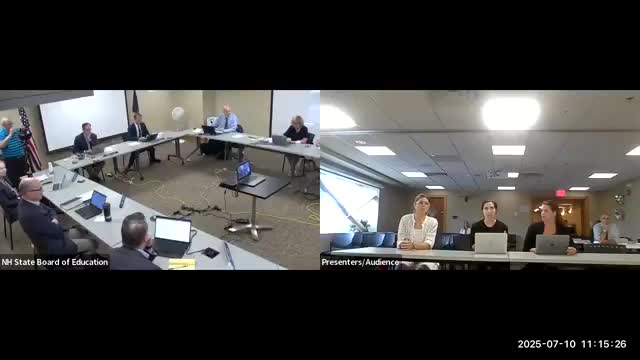
State board approves Hartford Charter governance change, asks for policies clarifying hiring and discipline authority
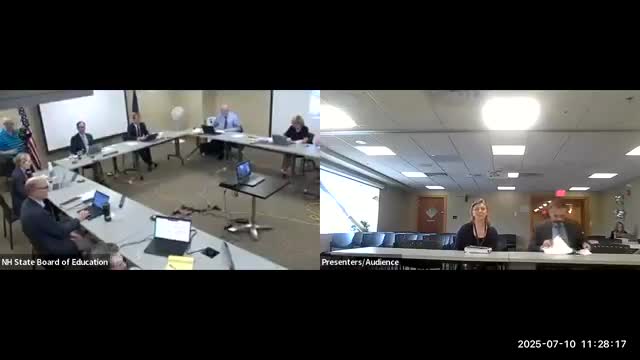
State board declines health 'Learn Everywhere' credit, cites misalignment with NH health standards
